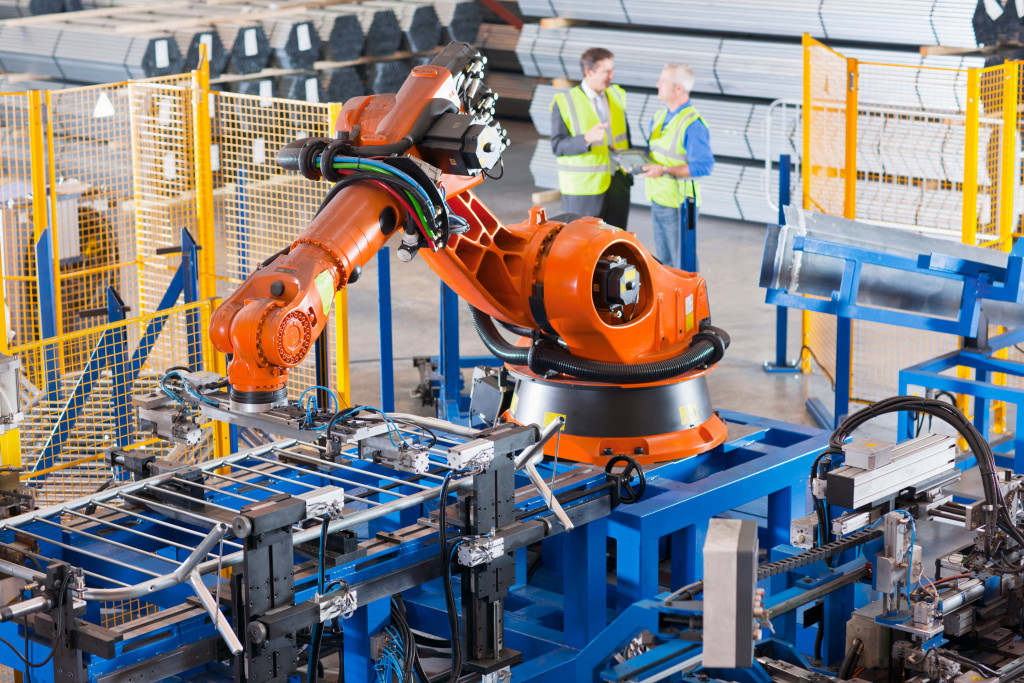- Manufacturing inefficiencies arise from poor resource utilization, inadequate planning, communication gaps, and unclear goals.
- Efficient use of resources and effective planning can significantly enhance a manufacturing plant’s production rate.
- Implementing open communication across teams and setting clear production goals are essential for smooth operations.
- Increasing plant efficiency can be achieved through automation, effective personnel training, lean manufacturing methods, and quality control measures.
- Attention to detail and proactive steps to identify and rectify inefficiencies can enable successful and efficient manufacturing business operations.
Running a manufacturing plant can be challenging for business owners and entrepreneurs. Sometimes, despite your best efforts, your plant cannot keep up with the production rate. This can lead to significant losses in revenue and affect your business operations. There may be several reasons your manufacturing plant cannot keep up with production. Here’s what you need to know about the industry, why your plant is inefficient, and how you can improve your plant’s efficiency.
The Manufacturing Industry Today
It’s easy to forget that the manufacturing industry contributes over a trillion dollars to the U.S. GDP. The industry produces various products, from furniture and toys to automobiles and aircraft. It has grown exponentially in the past few decades as manufacturers have become more efficient with their production methods. However, there are still many challenges that manufacturers face today. One of them is inefficiencies. Here’s a closer look into why your plant might be inefficient and proactive ways to deal with it.
1. Inefficient Use of Resources
One of the significant reasons manufacturing plants fail to keep up with the production rate is the inefficient use of resources. This can include anything from equipment to manpower. Ensuring all equipment is properly working and used to its maximum capacity is essential. Hiring trained personnel who can operate and use the equipment efficiently is also important. Regular equipment maintenance and personnel training are necessary to ensure they are used to their fullest potential.

2. Poor Planning
Another reason manufacturing plants fail to keep up with the production rate is poor planning. This can be anything from inadequate budgeting and scheduling to poor inventory management. Having a well-defined production plan that includes budgeting for resources, scheduling production runs, and inventory management is essential. Effective planning can help prevent delays and ensure that production runs smoothly.
3. Poor Communication
Communication is key to any business operation, and manufacturing plants are no different. Poor communication between teams can lead to delays in production and inefficiencies in the production process. It is essential to establish open lines of communication between teams and encourage collaboration to ensure smooth production operations.
4. Unclear Goals
Finally, a lack of clear goals can lead to production delays in manufacturing plants. It is essential to set clear production goals and targets and ensure that all personnel know their role in achieving them. This helps ensure everyone is working towards the same goal and that production runs smoothly.
Proactive Ways to Improve The Efficiency of Your Plant
There are various ways you can improve the efficiency of your manufacturing plant. Here are four ways:
Automation
The first step is to automate as much of the production process as possible. This helps reduce costs and increase efficiency by eliminating manual labor. It also allows for faster production turnaround times. Automation may include anything from integrating robotics into the production lines to implementing automated inventory management systems. Lastly, investing in certain brands like John Henry Foster is essential. These brands offer the best automation in the market for an affordable price.

Effective Training
Another way to improve the efficiency of your manufacturing plant is by implementing effective training programs for personnel. This helps ensure that all personnel are well-versed in their roles and know how to use the equipment for maximum efficiency best. Additionally, regular training sessions can help keep personnel updated on new technology and processes that may be used in production.
Lean Manufacturing Methods
Lean manufacturing is a set of principles used to reduce waste and increase efficiency in the production process. This includes anything from streamlining inventory management to eliminating non-value-added activities. Implementing lean methods can help you identify areas where production might be slowed down and make improvements accordingly.
Quality Control Measures
Finally, quality control measures are essential to ensure the highest quality of products. This includes testing each product against specific criteria and ensuring it meets them before selling. Additionally, having a team dedicated to conducting quality checks throughout the production process can help catch any errors early on and prevent delays or inefficiencies.
Ultimately, running a successful manufacturing business requires attention to detail and consistent effort to ensure efficiency. By understanding where inefficiencies may arise, you can take proactive steps to identify and address them. Additionally, investing in automated systems can help you increase the efficiency of your plant and get it back on track.


